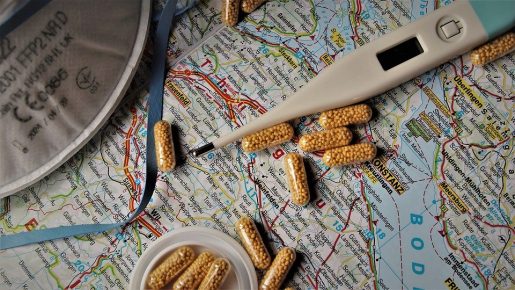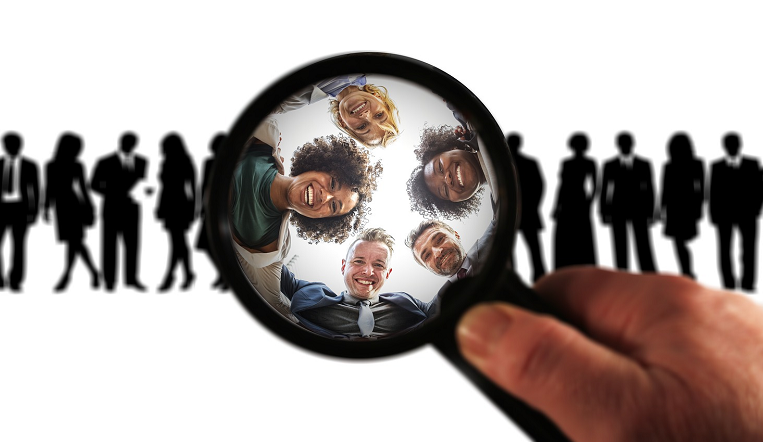Equity in COVID-19: Who will have access to life-saving treatment?
Is treatment available? Can I afford it? These questions are universally asked by many people — from the 65-year-old Medicare recipient at the local pharmacy in Texas to caregivers of children living with HIV in Tanzania.
Even before COVID-19, availability, accessibility and affordability of drugs, diagnostic tests, and vaccines were ongoing issues challenging vulnerable populations within our own country and especially those in low- and middle-income countries (LMICs). However, the spread of COVID-19 has highlighted how interconnected our world and public health concerns are, and, in doing so, called attention to the critical need to prioritize equity for all people around the world.
Influence and purchasing power can overshadow priority for the needy and vulnerable. This was exemplified through bidding wars for personal protective equipment and ventilators between U.S. states while Africa is shut out of the diagnostics market.
We have an obligation to ensure equitable access to the drugs and future vaccines being developed. These discussions must occur at the beginning of the development process, and deliberate action must be taken to ensure universal access.

Global leadership
Ensuring equity requires global collaboration. Along with world leaders, the World Health Organization (WHO) announced the Access to COVID-19 TOOLS (ACT) Accelerator to expedite not only the development of affordable COVID-19 technologies, but also equitable access to these tools.
This high-level cooperation across governments is critical to set the tone about the spirit of solidarity and priorities of access, from which policies and safeguards can be established to protect these values. These expectations serve to guide the numerous stakeholders critically needed in this effort — including private sector, public sector, and civil society.
Open science
Though multifactorial, barriers to treatment often stem from high drug costs, which usually result from strong intellectual property protection. We must learn lessons from the HIV epidemic, where global access to antiretroviral medicines were only realized a decade after wide availability in high-income countries.
With the Medicines Patent Pool as a model, the WHO proposal for a voluntary patent pool has gained momentum; this would share patent rights and data for developing COVID-19 products and provide access to lower-income countries.
Another approach to expand access urges countries to reverse compulsory license agreements, allowing them to grant their public agency or generic manufacturers license to produce medicines without the consent of the patent company.
Public return on public investments
It is often forgotten that governments are massive funders of the science leading to lifesaving technologies. For example, the novel drug treatment for COVID-19, remdesivir; federally-funded scientists helped discover remdesivir’s potential in preclinical and clinical development since 2014. But publicly-funded innovations don’t necessarily guarantee access to the public.
The final sticker price for remdesivir in the American market is yet to be set with projections of $10 to $4,500. A recent letter from Congress raised concerns and requested that President Trump “ensure any vaccine or treatment developed with U.S. tax-payer dollars be available, accessible and affordable.
Other public funding from WHO, Chinese and European institutions are supporting worldwide clinical trials for remdesivir. Though Gilead, the company that owns remdesivir, has recently signed royalty-free licensing agreements with generic manufacturers for distribution in 127 mostly LMICs, it still excludes a majority of the world’s population, including 440 million in Latin American countries.
Many of these countries were already facing economic and humanitarian crises before the pandemic. Governments should set conditions of funding up front so that resulting health innovations be safeguarded for public health.
Although COVID-19 has brought into focus the fragility of our health systems, it presents an opportunity for us to change the way we approach equity and access. Policies are needed to ensure that drugs, vaccines, and diagnostics get to the most needy and vulnerable. Our global health depends on it.
– By Diane Nguyen, Pharm.D., director of programs for the Baylor College of Medicine International Pediatric AIDS Initiative (BIPAI) and assistant professor of pediatrics at Baylor College of Medicine



